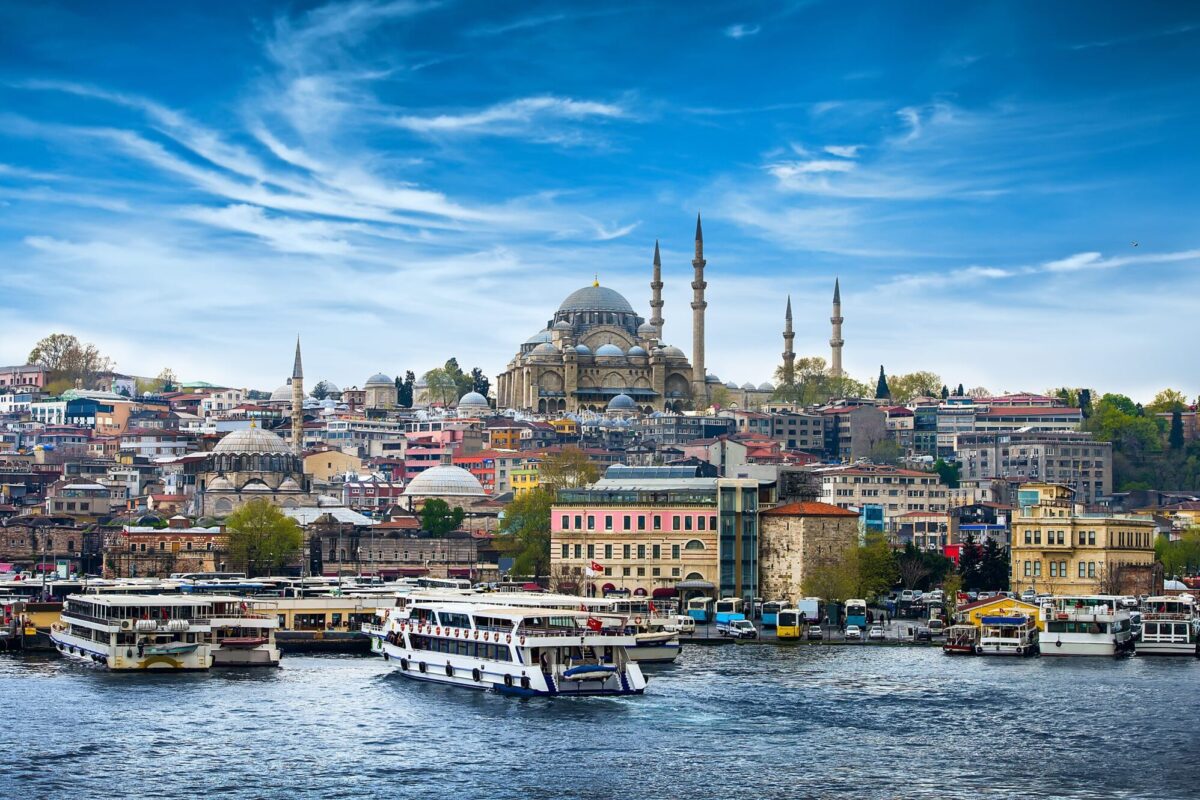Turkey Plays New Role as Business Travel Hub for Russia's Displaced Corporations

Skift Take
Russian tourists may be flocking to Turkish resort hotspots like Antalya and Bodrum, but the country looks set to become a critical business travel hub for Russia as growing numbers of corporations relocate there following sanctions imposed by the West.
A record number of Russian businesses opened offices in Turkey last year, with Russian citizens establishing 1,363 companies, according to reports. Based on the overall number of firms established with foreign capital, Russia has become the leading country, overtaking Iran which set up 1,300 companies, based on figures from Turkey’s Union of Chambers and Commodity Exchanges.
For the upcoming April-to-June quarter, Turkish Airlines has upped its number seats to/from Russia by 55 percent on the same quarter in 2019, according to data from Cirium. Turkish low-cost carrier Pegasus Airlines expects a 102 percent increase, while Russia’s Aeroflot’s Turkish seats will be up 149 percent.
Russian travel platform Aviasales for business reports flights from Russia to Turkey increased 45 percent last year compared to 2021. Of those business trips, 43 percent were transit flights, reflecting Istanbul's status as a key gateway.
Trading Platform
Of course, most destinations are seeing growth following a downturn caused by the global Covid-related restrictions, but Turkey is increasingly being seen as a “neutral” trading location as it has decided to not follow many other countries’ sanctions against Russia following its invasion of Ukraine last year.
As the war continues, many Russian businesses are looking for ways to continue to trade, in particular with firms who have banned from engaging directly with Russia.
More U.S. businesses also switched to Turkey after closing down in Russia, while last year Russia turned to alternative import routes, transforming Turkey into one of its main shipping hubs.
"It could be that Turkey is becoming a neutral place to facilitate travel, for Russian-owned businesses with the rest of the world, and vice versa,” said John Harvey, founder and chief marketing officer at Globalyse.
For how long remains a question though, as the U.S. Treasury Department starts to take a closer look at business activities there.
Challenger Destination
Since Turkey reopened to international travel in June 2021, FCM Travel, the business travel division of Flight Centre Travel Group, said it had seen a strong recovery in corporate travel with booking surpassing pre-pandemic levels.
“In the current geopolitical climate, Turkey is very well placed for entry to and from the European Union," said Javier Garcia-del-Valle, who heads up FCM Romania, Bulgaria, and Turkey.
The country's popular meetings, incentives, conference and events segment was also boosting recovery, he added, with currency devaluation and the corresponding value for money when doing business there also helping
"Currently travel plans are skewed towards the short term, but overall we continue to predict that corporate travel will accelerate in 2023," Garcia-del-Valle said.
Turkey is also emerging as an important travel hub for corporate travel agency CWT.
“Istanbul, in particular, is challenging the likes of Munich, Vienna and Zurich as primary business travel hubs thanks to huge investments from Turkish Airlines and Istanbul Airport,” said a spokesperson.
Globally, Turkey's main airports are fast approaching 2019 levels, according to Cirium (below).
| Scheduled departures | 2019 | 2020 | 2021 | 2022 |
| Istanbul Airport | 213,191 | 95,290 | 130,994 | 196,377 |
| Istanbul Sabiha Gokcen Airport | 114,606 | 66,164 | 88,613 | 98,176 |
| Antalya Airport | 68,491 | 30,948 | 40,672 | 70,025 |
| Ankara Airport | 45,971 | 21,908 | 28,101 | 30,704 |
“Looking at Turkey’s travel recovery in totality, volumes were back to around 70 percent of 2019 levels by the end of last year, and CWT saw a similar recovery in business travel in Turkey," the spokesperson added.
However, global travel management company BCD Travel warns the high inflation and depreciation of the Turkish Lira are impacting corporate travel budgets, and continue to pose headwinds to travel recovery, despite corporate travel returning robustly in 2022.
"Turkey is dealing with huge inflation, ongoing devaluation of the currency against the dollar and euro, and cost-of-living crisis," said Iain Withers, vice president, global network. "All of this has led to a very challenging travel environment."
And like China, visas are proving a challenge as embassies struggle to process the high number of requests needed for overseas travel, he added.




